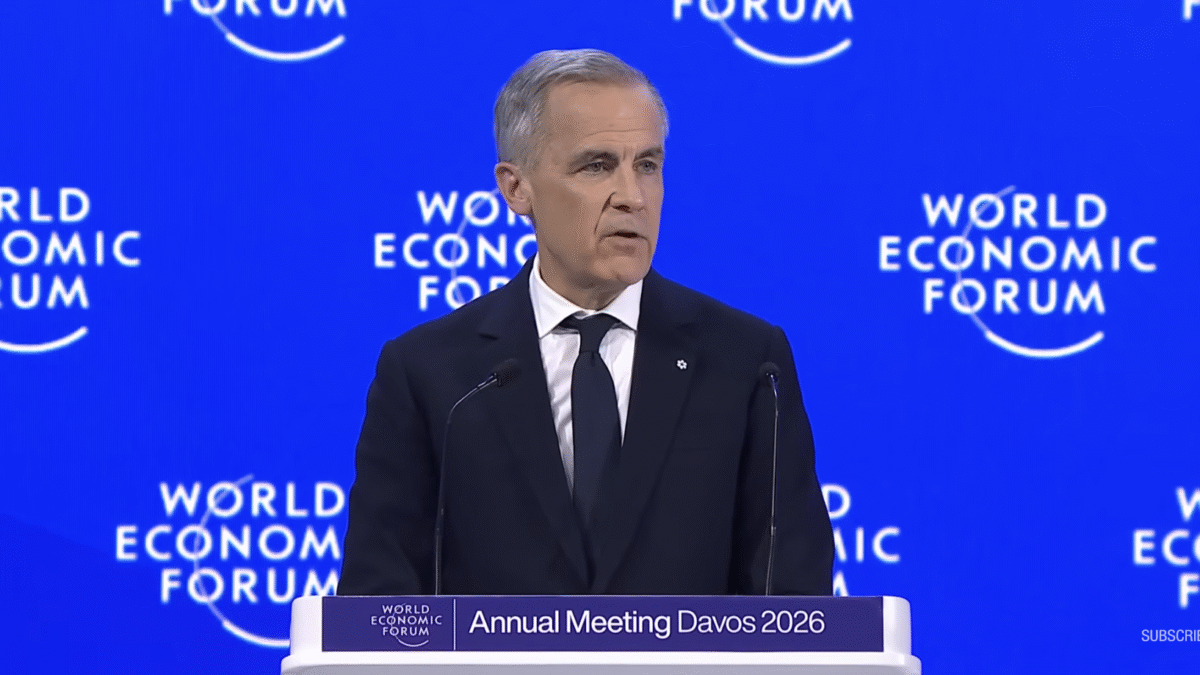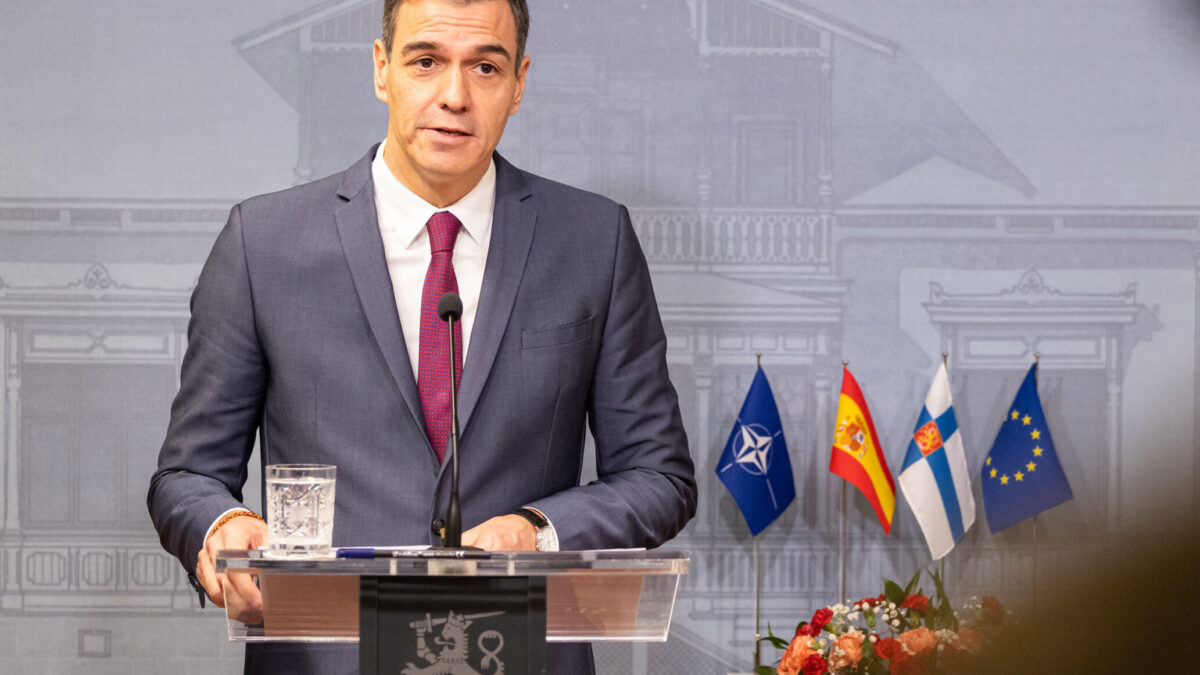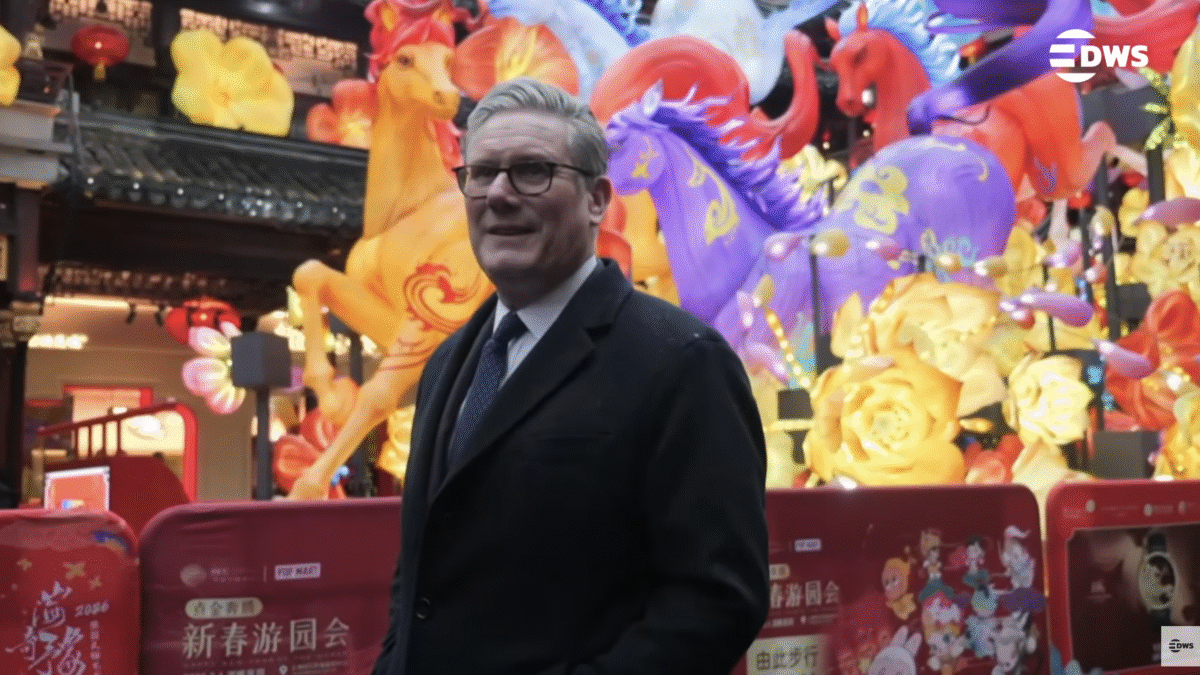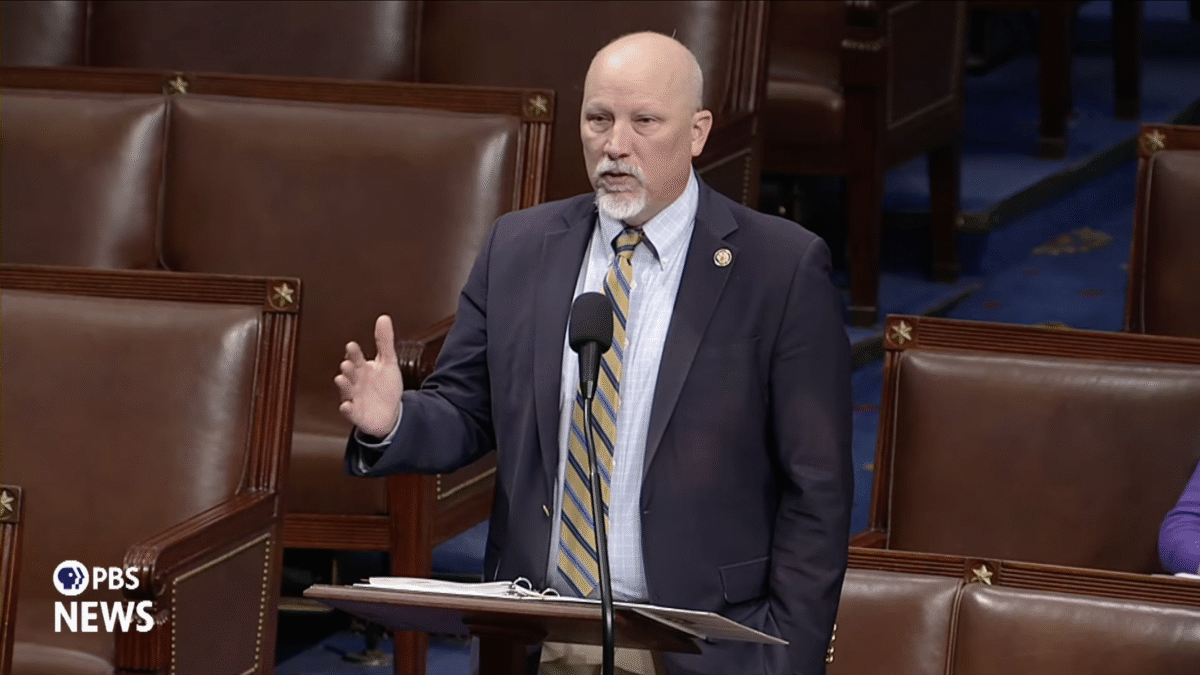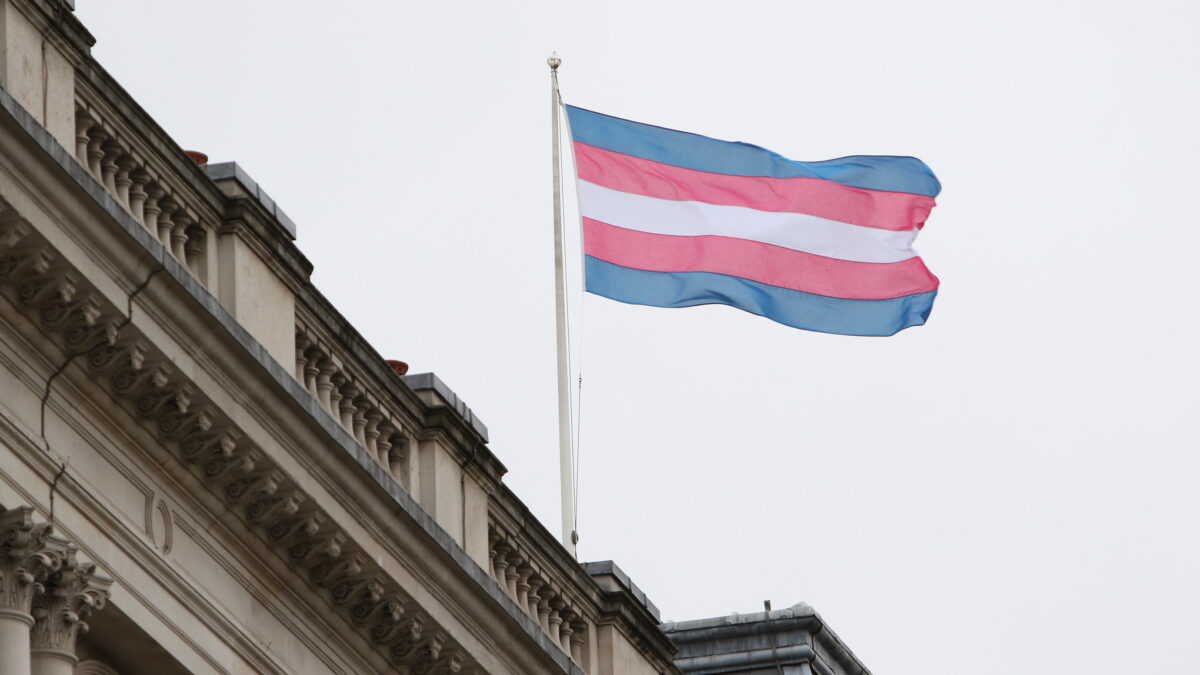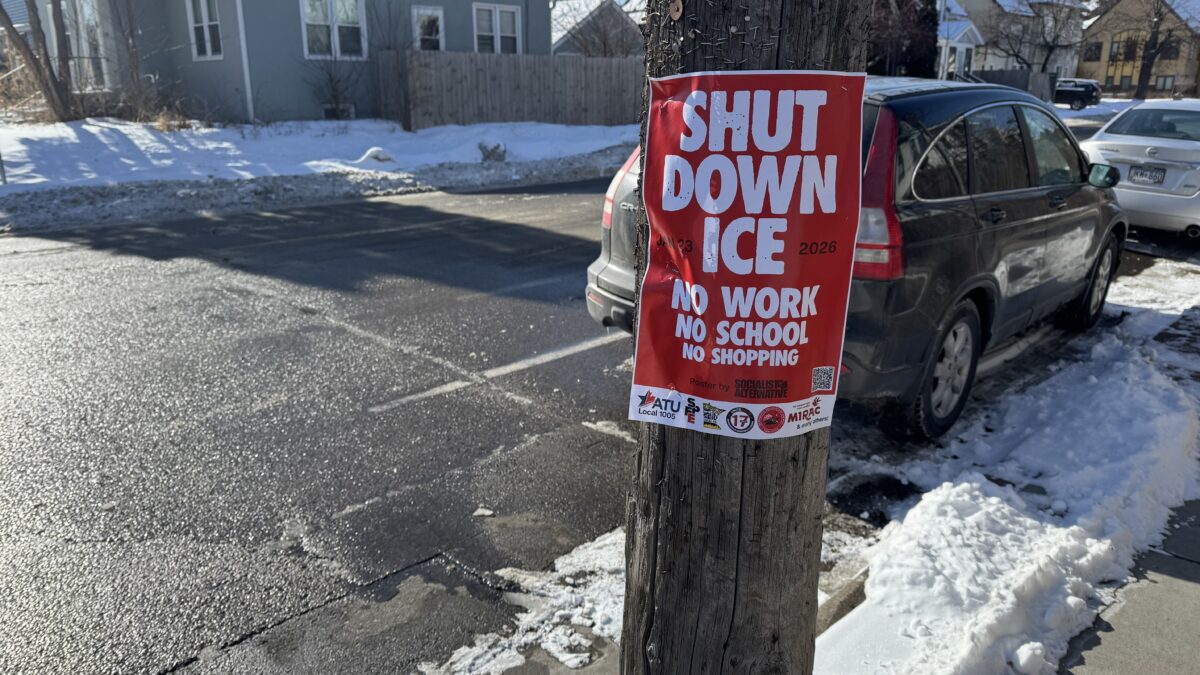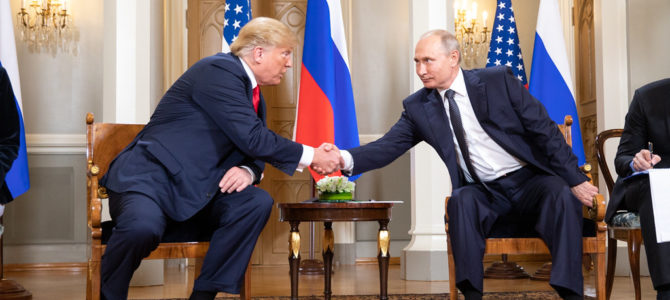
Vladimir Putin may be treated as a pariah in Washington, but that doesn’t mean U.S.-Russian relations should be in a perpetual state of mutual suspicion. With Russia’s more than 6,000 nuclear warheads in its arsenal, a permanent veto at the U.N. Security Council, and a president keen on making Russia a great power again, Washington doesn’t have the luxury of sidelining Moscow.
One can only hope 2020 will bring some stability to the broader relationship between Washington and Moscow. But as the old saying goes, hope is not a policy. To avoid any further deterioration, the Trump administration should take a page out of Europe’s playbook: resist Moscow when you must, but search for areas of cooperation and consultation whenever you can.
After nearly six years of sanctions on Moscow in response to the annexation of Crimea and support for separatists in Eastern Ukraine, France and Germany have both recognized that Russia needs to be dealt with whether they like it or not. French President Emmanuel Macron’s desire to turn the page in Europe’s relationship with Russia is a worthwhile attempt at pragmatic diplomacy with a power that isn’t going away. German Chancellor Angela Merkel is no Russia dove, but her recent visit to the Russian capital is a sign that frostiness doesn’t have to co-sign dialogue to the dustbin.
For Washington, of course, doing the same is easier said than done. To label the current state of the relationship as troubled, challenged, or unproductive would be the understatement of the century. Cold, dangerous, and exceedingly competitive are more accurate descriptions.
With Moscow’s interference in the 2016 presidential election still very much top of mind, Washington, D.C. is an unwelcome and forbidding place for Russian diplomats. In Moscow, Americans working in the embassy are often spied on or harassed. There is a dense fog hovering over every diplomatic interaction, with normal business at the head-of-state level often covered in sinister or conspiratorial tones.
The policy disputes between both capitals certainly don’t help either. Differences between Washington and Moscow are a dime a dozen, ranging from the small (Russian complaints about U.S. visa delays) to the significant (an emerging, 21st-century arms race stocked with more sophisticated missile technology). While today’s competition is far less serious than the U.S.-Russia rivalry during the Cold War, relations are unquestionably at their lowest ebb since the Soviet Union dissolved more than 30 years ago.
The situation sounds bleak, but it is still reversible if both nations find the courage to engage one another with clear eyes and sober minds. For one thing, former deputy secretary of state John Sullivan at least appears to be devoting his tenure as Washington’s new ambassador to Moscow to blocking a further degradation. If this is Sullivan’s intention, it would be wise to save a bilateral relationship too important for either country to let founder.
As former U.S. Ambassador Jon Huntsman wrote in his resignation letter last August, “While much of what divides us [the U.S. and Russia] is irreconcilable, there are common interests we cannot ignore.” To allow opportunities for working together to pass by with barely a wink would be a diplomatic dereliction of duty. The responsibility of any U.S. diplomat is to be on the lookout for those opportunities, however few and far between they may be, while always placing U.S. national security interests first and foremost.
Despite the long list of differences, Washington and Moscow do share a set of similar objectives. Preventing the resurrection of an arms race that would increase bilateral tension, inject a dangerous amount of strategic unpredictability into the world, and diminish the very transparency both nuclear superpowers need to plan for the future is the first agenda item both should tackle.
The quickest way to fulfill this objective would be to extend the New START agreement—the last remaining nuclear weapons accord keeping U.S. and Russian strategic stockpiles from spiraling out of control—for an additional five years and using this time to begin a more comprehensive (and thorny) arms control dialogue. Putin has already expressed his support for an extension before New START lapses in a little over a year; President Donald Trump should take him up on the offer in 2020.
Counterterrorism is another shared interest. U.S. and Russian security services may be jousting with each other on a daily basis, but both are on the same side against the likes of al-Qaeda and the Islamic State—two terrorist groups that have demonstrated in words and deeds their intent to harm citizens of both countries. Indeed, on December 30, Putin called Trump to thank Washington for providing information that assisted Russian security forces in stopping an attack in St. Petersburg.
Intelligence cooperation on a mutual security threat is realism at its finest; it not only results in concrete security deliverables, but can over time build up goodwill on both sides and bleed into other aspects of the broader relationship. Intelligence sharing on the terrorism threat should continue and, if necessary, expand. With thousands of its citizens joining the Islamic State over the previous five years, Moscow has a huge incentive to foster these ties.
As far as U.S.-Russia relations are concerned, there wasn’t much to celebrate in 2019. President Trump remains rightfully committed to improving the relationship with the Kremlin, but the Washington consensus remains wholly distrustful of even the smallest Russian diplomatic outreach.
This situation needs to change in 2020. The United States and Russia may strongly disagree on a variety of international issues, but these differences are hardly a sufficient excuse to be shortsighted.


